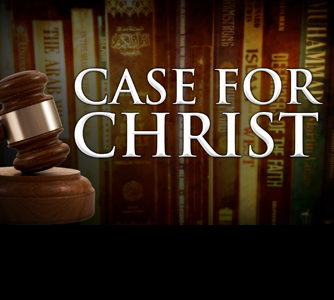
Matthew 2:13-18
13 Now when they had gone, behold, an angel of the Lord appeared to Joseph in a dream and said, “Get up! Take the Child and His mother and flee to Egypt, and remain there until I tell you; for Herod is going to search for the Child to destroy Him.” 14 So Joseph got up and took the Child and His mother while it was still night, and left for Egypt. 15 He remained there until the death of Herod. This was to fulfill what had been spoken by the Lord through the prophet: “OUT OF EGYPT I CALLED MY SON.” 16 Then when Herod saw that he had been tricked by the magi, he became very enraged, and sent and slew all the male children who were in Bethlehem and all its vicinity, from two years old and under, according to the time which he had determined from the magi. 17 Then what had been spoken through Jeremiah the prophet was fulfilled: 18 “A VOICE WAS HEARD IN RAMAH, WEEPING AND GREAT MOURNING, RACHEL WEEPING FOR HER CHILDREN; AND SHE REFUSED TO BE COMFORTED, BECAUSE THEY WERE NO MORE.”
We see here Matthew retelling the story of Jesus’ birth and early childhood through the lens of Jewish prophecy. When Jewish children grew up, they would be taught from the Torah (Old Testament) so as to remember the laws and history of the nation. These prophecies that are being referenced by Matthew aren’t cryptic or mysterious to his audience, they are engrained in every Jew that would be reading this letter. The first prophecy in verse 15 comes from Hosea 11:1, which completely says:
When Israel was a youth I loved him, And out of Egypt I called My son.
The youthfulness of Israel in this sense is not referring a young nation, but a rebellious one. In reading the rest of Hosea 11 we read God’s lamenting over His chosen people that continually worship other gods and refuse to love God the way they said they would. If we reread Hosea 11:1 we can get the same sentiment that Paul was trying to convey in Romans 5:8
But God demonstrates His own love toward us, in that while we were yet sinners, Christ died for us.
The second prophecy comes from Jeremiah 31, where God detailed the tragedy and redemption that would befall Israel. He first talks about their persecution and predicts Herod’s slaughter of Jewish babies but then He proclaims the coming of Jesus and the complete redemption and restoration that He will bring to the nation. Some may note the repetition here from when the Jews were held in captivity in Egypt and the plague of everyone’s firstborn being killed (the result of which became the Jewish tradition of Passover). Herod was ticked off because he expected the magi to bring him the boy or at least report to him where Jesus was, but they knew the man’s intentions and refused to do so. Can we see to what great lengths a man will go to protect his superiority? This is why Jesus taught that anyone who tries to save his life would lose it but those who lose their life for His sake will save it. That’s another lesson we will learn in Matthew, but until then, let us contemplate how Jesus’ birth and life on earth is beginning to shape into the fulfillment of these prophecies of old. Hosea was written between 800-780 B.C. and Jeremiah was written between 585-627 B.C. yet they come together to reveal the arrival of the long awaited Messiah.
It makes sense that Matthew would build the case for Jesus before revealing His teachings or principles. Especially with someone as unbelievable as Jesus, he had to prove to his audience that the account is worth reading in the first place. It is still interesting to note, however, how many Jews still rejected Jesus as the Messiah despite this mounting evidence. How much evidence do you need to believe that Jesus is the Christ?

